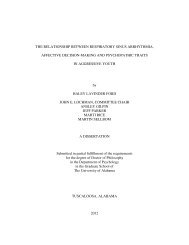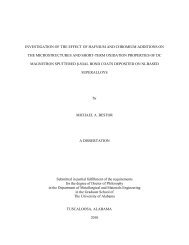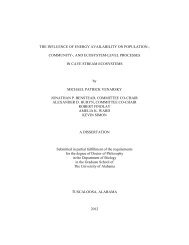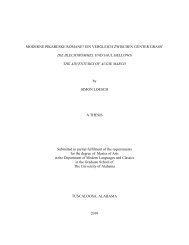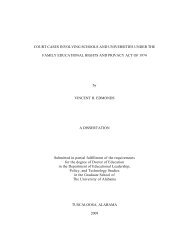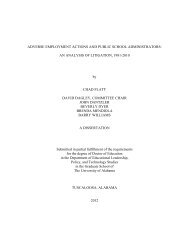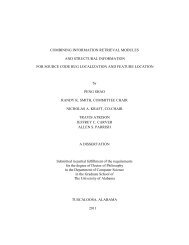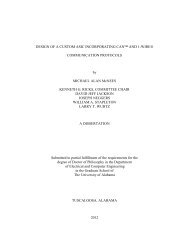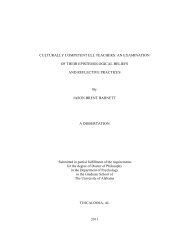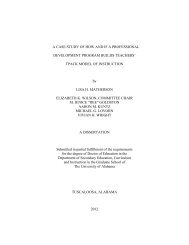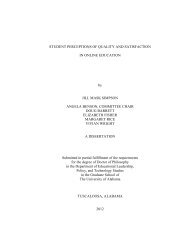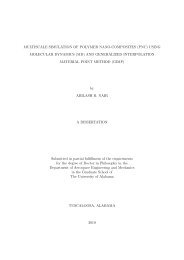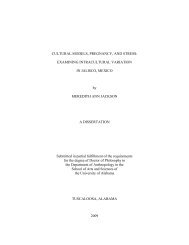THE COLLABORATIVE ARRANGEMENTS OF ALICE PARKER AND ...
THE COLLABORATIVE ARRANGEMENTS OF ALICE PARKER AND ...
THE COLLABORATIVE ARRANGEMENTS OF ALICE PARKER AND ...
You also want an ePaper? Increase the reach of your titles
YUMPU automatically turns print PDFs into web optimized ePapers that Google loves.
from gapped scales and modes, and they drew out some of Parker’s most artful composition,<br />
using the techniques that have been described above. “Hark, I Hear the Harps Eternal” remains<br />
the best-seller of all of the Parker-Shaw pieces, 80 and few of the early American folk hymn<br />
arrangements are permanently out of print. Perhaps it is largely the depth of profundity in the<br />
original tunes and texts, as noted by Shaw, that accounts for the lasting beauty of these<br />
arrangements. After all, an arrangement can only be as good as its fundamental material.<br />
Summary<br />
The Parker-Shaw collaboration began in the bustle and rush of what Shaw’s biographer<br />
Joseph A. Mussulman called his “white-hot years,” his thirties and forties, during which time he<br />
exerted tremendous energy in numerous endeavors. 81 Shaw needed some good arrangements of<br />
popular folk materials, but he was busy and needed to delegate their creation; he needed<br />
someone whom he could trust to do good research, to make intelligent sketches from which to<br />
begin, and with whom he could work and teach “the ropes” of producing the choral sound he<br />
desired. Alice Parker was his “go-to” person, and she succeeded wonderfully, beginning as a<br />
learner and developing into a consummate master of the style.<br />
It was the perfect time for them to work, with choral music and folk music being<br />
concurrently popular, providing a wealth of copyright-free foundational material, and an<br />
enthusiastic audience to appreciate it. As Shaw considered the style of music that would best<br />
meet RCA Victor’s requirements, he tapped on his glee club experience and combined it with the<br />
great classical knowledge he had gained, resulting in a choral concept he taught to Parker. This<br />
music shares nineteen style characteristics, and all of it reflects a desire to select folk-based<br />
80 Parker, email communication with author, 10 Sep. 2011.<br />
81 Mussulman, Dear People, 81ff.<br />
69



